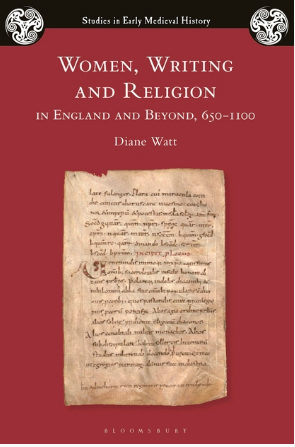
Finding a name for my forthcoming book was not easy. Many books about English literature, history, religion and culture in the period between 450 and 1066 have the term ‘Anglo-Saxon’ prominently in the title.
But the term ‘Anglo-Saxon’ is fraught for a number of reasons.
First and foremost, it is a term that has been appropriated by White Supremacists, especially but not only in the USA. Furthermore, Anglo-Saxon (or Old English) Studies and medieval studies as a whole have fraught racist histories, as Mary Dockray-Miller and Helen Young have explained.
It also isn’t accurate. In the early Middle Ages the population of the area of Britain that roughly corresponds to modern day England was as diverse as we might expect in an age of migration and travel (which is pretty much any age).
Our persistent misunderstanding of the early medieval period is as damaging today as it has been in the past, as Professor Adam Miyashiro pointed out in 2017 , and as Dr M. Rambaran-Olm has also recently shown us in a deeply moving and saddening post. Indeed three years ago, Dorothy Kim warned us against ‘the unbearable whiteness of Medieval Studies‘ more broadly.
When I started working on my book about a decade ago, it was clear from the start that ‘Anglo-Saxon’ was not going to feature in the title. In my field the term is sometimes used interchangeably with Old English to designate the vernacular language of the period. But most of the texts written by or for women that I discuss are written in Latin.
As a term to describe a time period, ‘Anglo-Saxon’ is not very helpful either. Everything did not suddenly change in 1066, and my book goes beyond this arbitrary date. Indeed, one of my explicit aims in the book has been to think about continuities between early and late medieval women’s literary culture.
Another problem I faced was that a significant number of the women I discuss in the book, although born in ‘England’ (although not necessarily to ‘English’ parents), moved to continental Europe in the course of their careers. So even as a geographical label, ‘Anglo-Saxon’ seemed inappropriately restrictive.
Coming up with a title was then challenging because I couldn’t fall back on the expected short hand that is usually employed (and which publishers love).
Furthermore, in the context of recent discussions about the very real harm caused by the continued use of the term ‘Anglo-Saxon’, and about the ongoing problems of racism and sexism within the field, I am glad that some months ago I made the decision to remove the term from my book completely, except when quoting other scholars, or citing titles in widespread usage (eg The Anglo-Saxon Chronicle). And while ‘early medieval’ is a useful substitute in some contexts, there are also inherent problems in adopting ‘English’ as an alternative (which is used by English nationalists in the UK, and is historically anachronistic), although it seems to me to be the lesser of two evils.
However, I still have much to learn. I need to think more about my citation practices and about ensuring I both read and cite a more diverse range of scholars and critics. As Dr Rambaran-Olm explains:
‘Silence or resistance to acknowledge scholars of color reinforces ever present white supremacy. Silence makes one complicit, but, on the same hand, so do empty words and undertaking zero practical measures to counter racism.’
